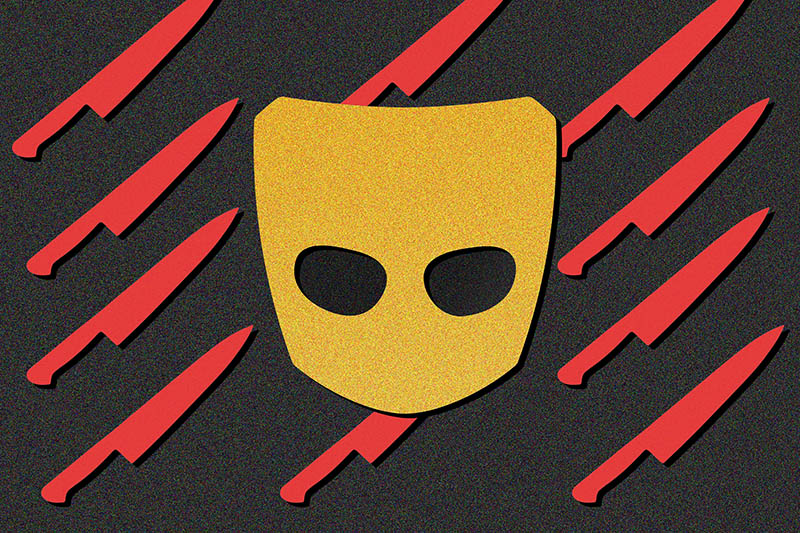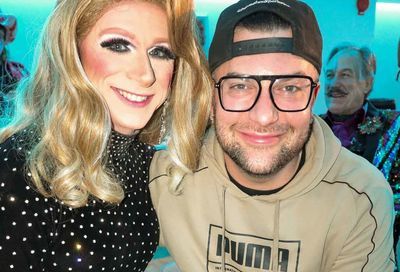LGBTQ youth suicides may have increased during COVID-19 pandemic, bucking national trend
The Trevor Project found that 42% of LGBTQ youth seriously considered attempting suicide during the COVID-19 pandemic

While recent reporting suggests that overall rates of suicide declined in the U.S. last year, The Trevor Project reports that LGBTQ youth suicides may have increased during the the COVID-19 pandemic, based on the increased number of youths saying they seriously considered attempting suicide over the past year.
The world’s largest suicide prevention and crisis intervention organization for LGBTQ young people, The Trevor Project has released the results of its third annual National Survey on LGBTQ Youth Mental Health, highlighting the impact that the pandemic has had on LGBTQ youth.
Among the survey’s top findings, 42% of LGBTQ youth seriously considered attempting suicide in the past year, including more than half of transgender and nonbinary youth.
Transgender and nonbinary youth were also twice as likely as cisgender youth to attempt suicide, at rates of 20% versus 10% for their cis counterparts.
The survey — which involved 35,000 LGBTQ youth aged 13-24 — also found that LGBTQ youth of color were more likely to attempt suicide than their white counterparts: 12% of white youth attempted suicide, compared with 31% of Native/Indigenous youth, 21% of Black youth, 21% of multiracial youth, 17% of Latinx youth, and 12% of Asian/Pacific Islander youth.
Teenaged youths, aged 13-17, were also more at risk of both considering and attempting suicide than those aged 18-24 — 48% had considered suicide and 20% had attempted it, versus 34% and 9% for older LGBTQ youth.
The Trevor Project found that respecting a transgender or nonbinary youth’s pronouns had a notable impact, with 24% of youth who don’t have their pronouns respected by those they live with attempting suicide, compared with 13% of those who do have their pronouns respected.
When the law allows for a person to change their legal documents to reflect their gender identity, it also reduces rates of attempted suicide. Of those trans and nonbinary youth not legally able to change their documents, 25% had attempted suicide. That dropped to 11% for those who had successfully changed their documents.
Confirming previous data, The Trevor Project also found that conversion therapy has a major impact on attempting suicide, with LGBTQ youth who had been subjected to the harmful practice reporting attempting suicide at more than twice the rate of those who hadn’t.
Of those who had been subjected to conversion therapy, 83% said it took place before they were 18 years old, with an average age of 15.
“The past year has been incredibly difficult for so many LGBTQ young people because of multiple crises, from the COVID-19 pandemic to the hostile political climate and repeated acts of racist and transphobic violence,” Amit Paley, CEO & Executive Director pf The Trevor Project, said in a statement. “This data makes clear that LGBTQ youth face unique mental health challenges and continue to experience disparities in access to affirming care, family rejection, and discrimination.”
Paley championed the survey as being The Trevor Project’s “most diverse yet,” noting 45% of respondents were LGBTQ youth of color and 38% were transgender or nonbinary.
“The data speaks to the wide variety of experiences and identities held by LGBTQ youth across the country, and emphasizes the need for comprehensive, intersectional policy solutions to confront systemic barriers and end suicide,” Paley said.
Among the survey’s other findings, The Trevor Project also reported concerning rates of generalized anxiety disorder symptoms among LGBTQ youth. Almost two-thirds of cisgender youth had a generalized anxiety disorder, including more than three-quarters of trans and nonbinary youth.
More than half (53%) reported a major depressive disorder, a rate that rises to 70% for trans and nonbinary youth. For both generalized and major disorders, rates were higher for younger LGBTQ youth than those aged 18-24.
More generally, 70% of LGBTQ youth told The Trevor Project that their mental health was “poor” most of the time or always during the COVID-19 pandemic.
Concerningly, nearly half of LGBTQ youth who wanted counseling from a mental health professional in the last year reported that they didn’t receive it.
More than 80% of youth reported that COVID-19 had also made their living situation more stressful, and only one in three said that their home was LGBTQ-affirming.
A vast majority of respondents (94%) also said that recent politics had negatively impacted their mental health. The past year not only included the final months of the actively anti-LGBTQ Trump administration, but the start of 2021 has also ushered in a wave of anti-transgender legislation being pushed by Republican lawmakers across the country.
Attempts to ban transgender youth from competing in sports according to their gender identity, prevent them from accessing gender-affirming healthcare, or allow cisgender students to sue if they see a trans youth using the restroom have passed in recent months.
“To all the lawmakers considering anti-transgender bills across the county — we urge you to take a hard look at this evidence and take time out of your day to actually meet with the transgender and nonbinary youth who would be harmed by your misguided proposals,” Paley said. “Affirming a young person in their gender identity is strongly associated with lower suicide risk. That’s why we should be expanding systems of support and implementing more inclusive policies, not denying trans youth access to affirming spaces and care.”
Dr. Amy Green, The Trevor Project’s vice president of research, noted that, despite being the largest organization dedicated to suicide prevention, “even we do not know how many LGBTQ youth die by suicide each year because that data is simply not collected systematically.”
“This third annual survey aims to fill the gaps in the limited research we do have on LGBTQ youth mental health and suicide risk as a means to raise public awareness and improve public health interventions,” Green said in a statement. “These findings are extremely concerning as they highlight many distinct factors that contribute to LGBTQ youth suicide risk.”
Green encouraged “lawmakers, public health officials, and youth-serving organizations to focus on the protective factors illuminated in the data, which point to best practices on how to better support LGBTQ young people.”
“Once again, we find that LGBTQ-affirming spaces and transgender-inclusive policies and practices are consistently associated with lower rates of attempting suicide.”
If you or someone you know needs help or support, The Trevor Project’s trained crisis counselors are available 24/7 at 1-866-488-7386, via chat at TheTrevorProject.org/Help, or by texting START to 678678.
Related:
Tennessee will allow students to sue if they see a trans person using a multi-occupancy restroom
Texas Democrat revives anti-trans sports bill out of spite
Read More:
Queer people more likely to experience negative interactions with police, study says
Gay teacher shot and set on fire in brutal murder
Mormon professor apologizes after calling gay student an anti-Christ
Support Metro Weekly’s Journalism
These are challenging times for news organizations. And yet it’s crucial we stay active and provide vital resources and information to both our local readers and the world. So won’t you please take a moment and consider supporting Metro Weekly with a membership? For as little as $5 a month, you can help ensure Metro Weekly magazine and MetroWeekly.com remain free, viable resources as we provide the best, most diverse, culturally-resonant LGBTQ coverage in both the D.C. region and around the world. Memberships come with exclusive perks and discounts, your own personal digital delivery of each week’s magazine (and an archive), access to our Member's Lounge when it launches this fall, and exclusive members-only items like Metro Weekly Membership Mugs and Tote Bags! Check out all our membership levels here and please join us today!



























You must be logged in to post a comment.